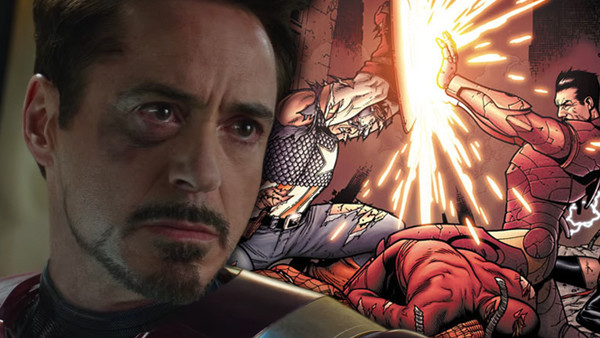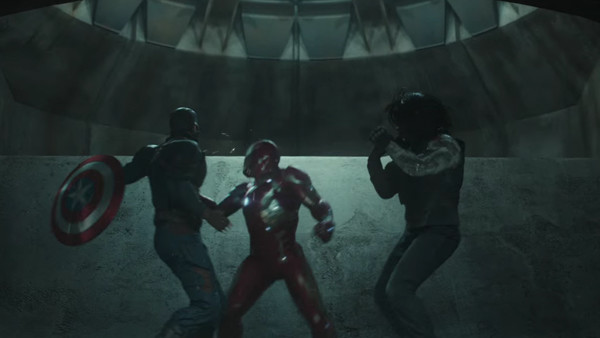The Disturbing Truth Behind Marvel's Civil War
Is Captain America: Civil War the final step in Marvel's decade-long scheme?

"It's a great time to be a comic book movie fan," proclaims every thought piece on the current state of superhero cinema. To be honest, I'm not a massive fan of the phrase. Oh, it's not exactly a wrong statement - there's six superhero movies being released and more complex stories and obscure characters are making it to the big screen - but something about the excitement feels a bit self-imposed, like it's an empty form of hype.
Maybe it's because it's one of those "from a certain point of view" things; while it's true there's a lot of exciting movies on the horizon, the same "great time" statement isn't exactly true for pure comic book fans wanting movies based on what they love. Now I'm not a massive reader of graphic novels, but I know pop culture, and there's a definite divide between what's on the page and what's making it through to the silver screen.
Deadpool may have been a massive hit, but many of his more extreme eccentricities and medium-busting quirks were downplayed for a more standard superhero narrative and Batman V Superman: Dawn Of Justice manage to butcher both The Dark Knight Returns and The Death Of Superman while also placing severe restrictions on the version of the Justice League we'll see going forward.
Next up is Captain America: Civil War, and while I'm sure it'll be great (Marvel are at worst consistently solid), don't expect it to be anything approaching a faithful adaptation of the Mark Millar comic mega-event from which it takes its subtitle. Yes, we do have Rogers vs. Stark conflict motivated by a government sanctioned movement, but outside of the very broad set up this is looking to be a very different beast. This is mostly by design, but the MCU status quo is quite simply a world away from that of the comics a decade ago, with a smaller roster of characters necessitating to a more intimate story; Bucky is shaping up to be as integral a part of the conflict as the Sokovia Accords.

Of course, comic accuracy isn't that important to a movie's success, in terms of both entertainment or financial success. And, on the plus side for those in love with the print version of the characters, things are a lot better than they were at the start of the genre's boom; the movies of the early naughties, while containing some gems, played pretty free and loose with how they told their stories. Characterisation in particular is mostly excellent - that was where Deadpool really popped.
And, just pausing a second, it is pretty cool that the basic make-up of the Civil War conflict can still be achieved. You have Iron Man and Captain America with a history placed in the right ideological standpoints, and there's no key elements missing from the fray; Spider-Man will obviously play a part, and the big characters Marvel don't have the rights to weren't that involved in the comic in the first place.
Wait a minute... Civil War pushed Captain America and Iron Man, characters a rung below household names Spider-Man and Hulk, while also shifting focus away from long-standing stalwarts X-Men? Then that means... something shocking. Civil War wasn't an isolated comic event, but the preemptive groundwork for the entire Marvel Cinematic Universe.
Click next for how the state of superhero movies led to Civil War.